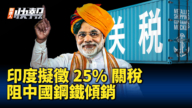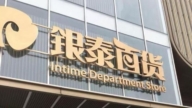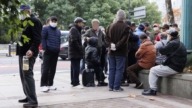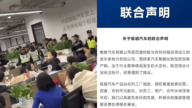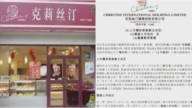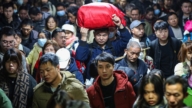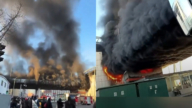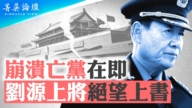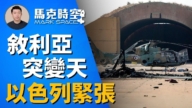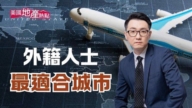【新唐人2013年07月12日讯】6月19号,在中共举行的国务院常务会议上,总理李克强指称,当前中国的经济和金融面临严峻的问题,而这些问题使他“透不过气来”。他还明确指出了6方面问题。不过从李克强的问题中,分析人士解析,李克强等于自己承认了﹕中共本身是造成社会动乱和金融震荡的一颗定时炸弹。
香港《争鸣》杂志最新一期的内容,其中提到,李克强在近期的国务院常务会议上,着重讲了当前中国社会经济、金融面对的严峻问题,他还强调,有6方面的经济问题,压得他透不过气来。
这六个问题分别是:
1.中央和地方就经济发展及经济转型的政策、方向不协调、矛盾﹔
2.经济发展和转型处于徘徊状况,影响整个国民经济发展规则进程﹔
3.金融的管理、监管、金融资源配置,处于不完善、不规则状况,金融不良资产长期高筑﹔
4.证券市场长期处于不规则状态,和受利益集团操控情况,成了社会动乱、金融震荡的计时炸弹﹔
5.地方国民经济增长数据、税收数据、借贷数据、资金外流数据、进出口外贸数据、大型工程进度数据等统计,都存在不同程度的、大的误差﹔
6.社会各项有关民生通胀指标被有意造假,以掩饰社会矛盾和民怨民愤。
那么,在中共集权的统治下,地方和中央的所谓“不协调、矛盾”是如何产生的﹖记者就此采访了美国“南卡罗莱纳大学”艾肯商学院教授谢田。
谢田举例说,从中央的角度来讲,他们希望中国的经济转向高附加值,和高科技环保这些产业上,而地方政府为了眼前利益,着重发展烧煤、燃煤企业,开采煤矿,因此破坏了环境。
美国“南卡罗莱纳大学”艾肯商学院教授谢田:“这个问题说明,虽然是中央集权的,但有时在很多问题上,中央政府的管理和控制也是失灵的。中央和地方在经济发展方向上的分歧,李克强如果因为这个透不过气了,他应该问问习近平应该怎办?”
对于李克强提的——当前经济发展和转型处于徘徊状况,谢田认为,这是在告诉大家,中共所希望的经济发展和转型已经停止不前或者没有突破。
谢田:“所有的政权包括那些独裁政权,都希望把他的经济搞的很好,就可以换取他的合法性,但是经济的转型也好、产业升级也好,根本不是独裁统治集团心想就可以成的,这个要通过很多的基础研究、应用研究、和一个自由开放的社会,才能促成。”
据了解,前中共中央政法委书记周永康和儿子周斌父子两人,利用在石油和政法委系统的影响力,大搞权钱交易。《大纪元》新闻网报导,周永康家族已经集聚至少200亿财富。
谢田:“中国金融的管理和控制是在谁的手里呢﹖恰恰就在中共的特权阶层,高干子弟权贵阶层的手中,被权贵阶层所绑架。恰恰是中国共产党造成的。要解决配置不完善、不规则状况,也必须把中国共产党的权力给解除掉。”
2011年,江泽民的孙子江志成(Alvin Jiang)建立了“博裕投资顾问有限公司”,这家俬募基金将筹集至少10亿美元,对中国市场进行收购。
而中共中央政治局常委刘云山的儿子刘乐飞,是“中信产业基金”的董事长兼CEO。
谢田:“证券市场长期处于不规则状态和受利益集团操控的情况,造成了社会动乱、金融震荡的计时炸弹,这个也确实值得让李克强透不过气来。但是,为什么有这种不规则状态,就是因为共产党他自己又高于法律的权力。实际上李克强这个说法承认了中共本身造成中共社会动乱和金融震荡的一个定时炸弹。”
稍早前有分析指出,李克强想通过“钱荒”,逼迫银行把资金用于支持实体经济,但是,面对中共权贵阶层把持的金融业,他也无能为力。
采访编辑/常春 后制/王明宇
Chinese Premier Li Keqiang Exposes Financial Pressures
On June 19, the Chinese Communist Party
(CCP) Premier Li Keqiang spoke in a meeting.
Li said the economic and financial problems
are now severe, and he can’t cope.
Li highlighted six issues.
Analysts said that Li has likely admitted
that the CCP is the leading cause of
social unrest and financial problems.
Chengming magazine’s latest issue in Hong Kong
reported that Li Keqiang spoke in a state council meeting.
The current Chinese economy is facing severe problems.
He said that six aspects had given him
a lot of pressure, which he can’t handle.
The six issues are:
Conflicts with policy and direction of economic development
and restructure exists between Central and local government.
Economic development and restructuring is lingering,
and inhibiting the entire national economy from progressing.
Financial management, regulation and resources
are imperfect, and bad assets have accumulated.
The stock market have long been controlled
by interests groups, causing social unrest.
There are large data errors with local economic growth,
taxations, loans, financial outflows, and imports/exports
livelihood inflation targets are intentionally
fraudulent, to cover up social discrepancies.
Under CCP totalitarian rule, how are conflicts
between local and central governments created?
NTD interviewed Xie Tian, Professor at the School
of Business, University of South Carolina Aiken.
Xie Tian gave an example.
From the central governments point of view, China’s
economy should be transformed into a high value-added
and high-tech, environmental protection industry.
However, local governments focus on the coal
mining industry, in order to obtain immediate profits.
Thus, there is environmental destruction.
Xie Tian: “This example indicates that although the CCP
is centralized, in many aspects, it does not have control.
There are conflicts between central and local government,
with regard to the direction of economic development.
If Li Keqiang feels he can’t handle this,
he ought to ask Xi Jinping what to do?”
Xie Tian commented on Li Keqiang’s words about
economic development and transition being insecure.
It shows economic development and restructuring
has stopped, or that has not made a breakthrough.
Xie Tian: “All countries, including dictatorial regimes
hope to do well economically, in order to gain legitimacy.
But, it doesn’t work like that.
They need to go through many basic studies and practice,
and need to have freedom in society to achieve this goal.”
Sources said that former head of the Politics and
Law Commission Zhou Yongkang, with his son
Zhou Bin, have used their influence in the oil industry.
They have vigorously bartered with money and power.
The Epoch Times website reported that the Zhou’s
has seized at least 20 billion Yuan in assets.
Xie Tian: “Who does really control China’s finances?
Precisely speaking, it is controlled by the CCP
privileged groups, and officials princelings.
The CCP is the leading cause of the problems.
To solve the problems of economic imperfection
and irregular situations, the CCP must be removed.”
In 2011, Alvin Jiang, grandson of Jiang Zemin,
established a private equity firm Boyu Capital.
He raised at least $1 billion
to buy companies in China.
Politburo member Liu Yunshan’s son, Liu Lefei is
Chairman and CEO of CITIC Private Equity Funds.
Xie Tian: “The stock market has had a long-term
irregular status, under control of interests groups.
It has caused social unrest and economic upheaval.
It indeed makes Li Keqiang feel he can’t handle
this well. However, what’s the reason to cause this?
The reason is the CCP is above the rule of law.
Actually, Li Keqiang’s words shows he admits the CCP is
the leading cause of social unrest and economic upheaval.”
Earlier, some analysts said that Li Keqiang wanted to use
“cash shortages” to force banks to fund the economy.
However, the CCP privileged groups control
the financial industry, and Li can’t do anything.


